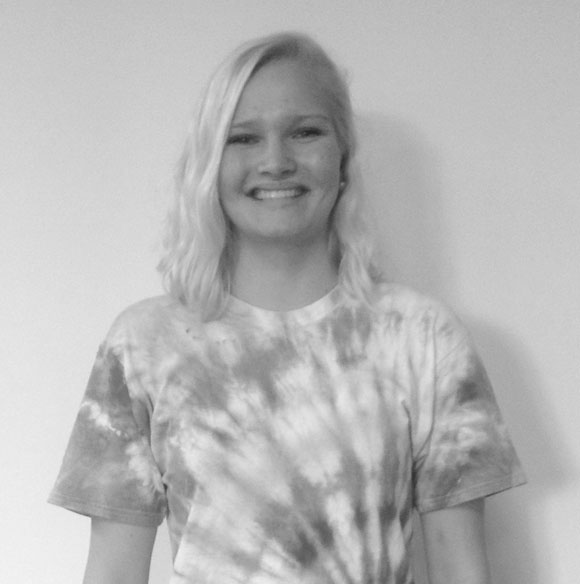Teacher and Johnston alum self-publish poetry
May 9, 2014
Sam Han- Johnston alum self-publishes poetry
Before publishing two books of poetry, 24-year-old Johnston alum Sam Han started out posting his poetry on Facebook. Han started writing poetry his freshman year after moving to Philadelphia to study acting at Temple University. The exposure to Philadelphia inspired him to write lots of poetry.
“You’re just thrown into this new world and you’re on your own and nobody else is telling you what to do, no one else is telling you how to think and you are able to really just develop your own ideas,” Han said. “I was up late like every single night just really thinking about those things are really just taking it in and wondering about life and love and those things really got me to express it in a way that I guess I never thought about doing it before.”
After receiving positive feedback from friends, Han decided to turn his Facebook posts into books. Han’s first book is compiled of poems he wrote from the new experiences and the second book was more deliberate.
The books were published for himself, not for money. “Both of those were really for my own (purposes),” Han said. “I never really intended to try to sell them or make any money. It was more for me, just documentation of something I can look back on and people might say ‘Hey are you a writer or are you like poet’ and I be like ‘Yeah I am do you want a sample of my work?’”
Han’s favorite writers are William Faulkner and Ernest Hemingway. “They talk a lot about distilling the writing, talking about using the least amount of words possible to get across any given message or point,” Han said. “I can’t remember who said it, if it was Faulkner or Hemingway, but one of them was talking about how every writer wants to be a great poet because a poet in ten words can do what a short story writer can do in 1,000 words and a short story writer can do in 1,000 words what it takes a novelist 10,000 words to do and I thought that idea was so cool.”
Han writes about his raw, uncensored thoughts and feelings. “I remember there have been times when I was very angered or very upset or very frustrated by something or someone and I’ll write a poem reflecting that emotion and I won’t hold back,” Han said. “I’ve even written poems about specific people and tagged them in it on Facebook. A lot of people might be afraid to do something like that but I’ve done it on both ends of the spectrum, whether I was in love with them or I was super upset with them.”
The hardest thing about poetry in Han’s eyes is successfully conveying to someone the exact emotions. “You want people to connect, you want people to understand, you want people to feel what you’re feeling,” Han said. “And you’re never sure if that’s going to be the case because even if you describe it perfectly yourself, somebody else might read it and read something different or be confused.”
Han believes that inspiration can come from anywhere and everywhere. “I feel like now when it comes to me I know exactly what to do with it.”
Ed Walker- English teachers self-publishes poetry
English teacher Ed Walker said that the reason he is a teacher today is because of poetry.
“Because of my love of poetry, because I went to grad school and studied it, I also applied for a teaching job which I got,” Walker said. “And I taught my first class in the fall semester of 1989 and loved it. Poetry is really the reason why I’m a teacher today.”
Walker earned a degree in history at Drake before pursuing a master’s degree in poetry/creative writing at the University of Arizona. “I applied to two schools, one was the University of Iowa Writer’s Workshop and one was the University of Arizona creative writing program and I got accepted to both and I went to Arizona because that’s where a professor of mine did her MFA (Masters of Fine Arts),” Walker said.
In his creative writing class, Walker works with students on writing poetry and also pursues poetry independently. He finds that mythology and history greatly impact his inspiration for writing poetry. “A lot of my reading lately has been about ancient religions and those beliefs and practices right now are really interesting to me to write about when I actually get some writing time,” Walker said. “I also like to use different aspects of different cultural beliefs in poems so I like creating characters in poems from, let’s say, a Western Christian tradition and putting them down in more of (for example) an ancient Mexico tradition and kind of seeing how those different factors bump up against each other.”
For beginner poets, or people struggling to find poetry enjoyable, Walker recommends reading a variety of poetry. “What I often tell my students is Never let the fact that you don’t understand everything that happens in the poem keep you from enjoying it and loving other parts of it,” Walker said. “Because truth of the matter is a lot of us who are very sophisticated still encounter poems that we don’t understand. The main advice I would give is don’t be afraid of it. Read it. Take from it what you can and you might find it’s not such a difficult thing to manage after all.”




